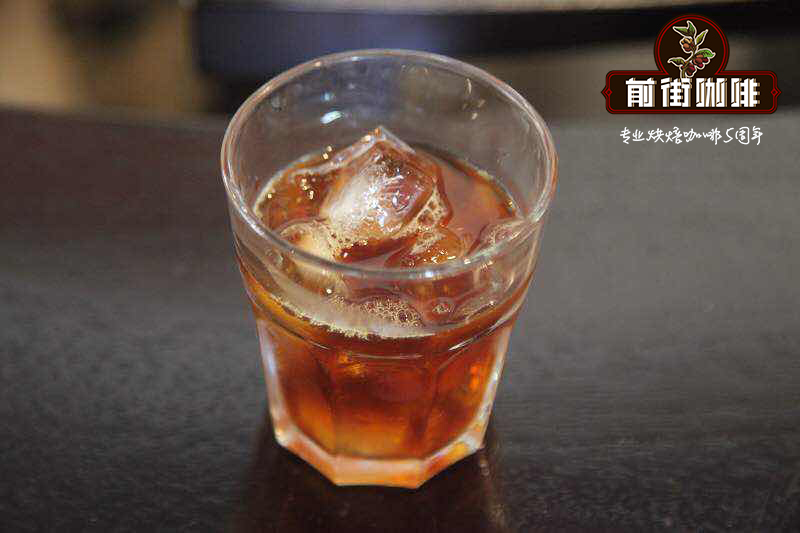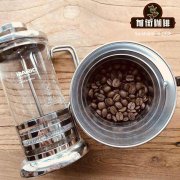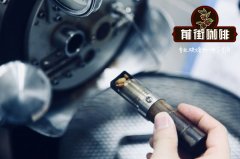Is the Yemeni mocha coffee good? What kind and variety? Flavor and characteristics?
Is the Yemeni mocha coffee good? What kind and variety? Flavor and characteristics?

Although it is very difficult to grow coffee in Yemen, Yemen produces the best coffee in the world, and this practice has been going on for hundreds of years. Only 3 per cent of Yemen's land is considered arable, of which less than 1/4 is used for coffee production. As a cash crop, coffee is second only to qat, a popular mild stimulant whose leaves are chewed. Yemeni coffee production is about 99000 small households, which means that the average coffee acreage is less than 3/4 acres. This area is usually very steep because most of the coffee grows on the hillside, on the terrace carved from the hillside.
The production of coffee beans in Yemen is very low. The small size of the farm, lack of water and poor planting techniques hinder production. Many coffee farms are grown by sharecroppers and there is little incentive to invest in terraces, water conservation and other improvements. Despite these obstacles, Yemen continues to produce excellent coffee.
Yemeni Coffee wins Global Award
Coffee from Yemen has been treasured for centuries. It used to be one of the world's top producers, and its mocha coffee, exported from the old port of Mocha, is the original mocha coffee of Mocha Java, which originated when traders mixed Middle Eastern coffee with Dutch coffee from Southeast Asia. Compared with other coffee-producing countries, Yemeni coffee is scarce; Yemen consumes nearly 3/4 of its domestic production, and 55 per cent of its exports go to Saudi Arabia, its wealthy neighbour to the north.
Our Yemeni Mokamatari
We are pleased to be able to provide you with the taste of this rare coffee from Yemen. Our Yemeni Mata has a very good taste. It starts with a hint of dark chocolate and reappears in the taste. The coffee is full-bodied, moderately acidic and just right in brightness, but something almost green or herbaceous may add to the taste of growing on a steep mountain terrace. Our Yemeni Mokamatari is an excellent coffee and we hope you like it.
The history of mocha
Shortly after the discovery of coffee in Ethiopia, the coffee shrub went to Yemen and was written by the mysterious Suffith as early as the 15th century. With the increase in coffee cultivation in Yemen, from the ancient port of Al-Makha (now the modern term "Mocha" can be traced back to its origin). Soon, raw beans were smuggled out of Yemen, and these Yemeni coffee beans gave birth to a variety of coffee grown around the world as we see today. But Yemeni coffee remains unique...
The uniqueness of Yemeni coffee can be attributed to the uniqueness of Yemen itself. Yemeni coffee has been isolated over centuries from the offspring of smuggled beans that produce coffee in other parts of the world. In Yemen, coffee traditionally grows in harsh environments at high elevations with little rainfall. Therefore, grape varieties developed in Yemen must survive in harsh climatic conditions. They are the result of centuries of adaptation to these unique conditions-so the breed itself is unique. In addition, the increased pressure on plants under these conditions increases the amount of nutrients and sugars that push cherries, which ultimately increases the complexity of the cup. Due to the lack of rain, Yemeni coffee has been dried (naturally), further increasing the sweetness of the cup.
A lot of this Matari comes from the famous Bani Mattar district of Sana'a. It is made up of many small plots of farmers. Yemeni coffee varieties are usually simply classified as "heirlooms", but the main varieties represented in this region are locally known as "Udainy" and "Dawi'ry". At an altitude of 1775-1950 meters, the selection process of this coffee is based entirely on the quality of the cup.
Now that Yemen is at war, this coffee has a story. The mill team told us that the mill itself was often shaken by bomb attacks, and that the luggage would even be moved to several different locations (always in GrainPro) before exit, depending on the focus of the air raid! Most importantly, all the usual exits were closed, leaving the only available option on the other side of the war. Finally here, there is not even a trace of gunpowder in the cup.
Flavor-grapes, tropical fruits, clean earth, sweet.
Acidity-juicy citrus.
Important Notice :
前街咖啡 FrontStreet Coffee has moved to new addredd:
FrontStreet Coffee Address: 315,Donghua East Road,GuangZhou
Tel:020 38364473
- Prev

What's the difference between a Yemeni martini mocha and a latte? Flavor characteristics of mocha beans
What's the difference between a Yemeni martini mocha and a latte? What are the flavor characteristics of mocha beans? The Yemeni Mokamatari is grown in the rugged mountains of Yemen on the Arabian Peninsula. This is one of the oldest and most famous coffee, this is the real mocha coffee. The legends of Omar and Caldi attribute this coffee to the power of life itself. Yemeni coffee is the most unique in the world
- Next

The characteristics of the Coffee producing area Story of Yega Sheffield Wauka Co-operative Coffee Co-operative Coffee producing area
Professional coffee knowledge exchange more coffee bean information please follow the coffee workshop (Wechat official account cafe_style) what is Yega Xuefeiwoca? And flavor description? Country: Ethiopia producing area: Yega Xuefei altitude: 1850-2100m treatment method: sun treatment grade: G1 variety:
Related
- Detailed explanation of Jadeite planting Land in Panamanian Jadeite Manor introduction to the grading system of Jadeite competitive bidding, Red bid, Green bid and Rose Summer
- Story of Coffee planting in Brenka region of Costa Rica Stonehenge Manor anaerobic heavy honey treatment of flavor mouth
- What's on the barrel of Blue Mountain Coffee beans?
- Can American coffee also pull flowers? How to use hot American style to pull out a good-looking pattern?
- Can you make a cold extract with coffee beans? What is the right proportion for cold-extracted coffee formula?
- Indonesian PWN Gold Mandrine Coffee Origin Features Flavor How to Chong? Mandolin coffee is American.
- A brief introduction to the flavor characteristics of Brazilian yellow bourbon coffee beans
- What is the effect of different water quality on the flavor of cold-extracted coffee? What kind of water is best for brewing coffee?
- Why do you think of Rose Summer whenever you mention Panamanian coffee?
- Introduction to the characteristics of authentic blue mountain coffee bean producing areas? What is the CIB Coffee Authority in Jamaica?

